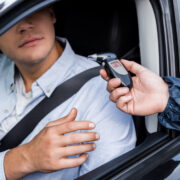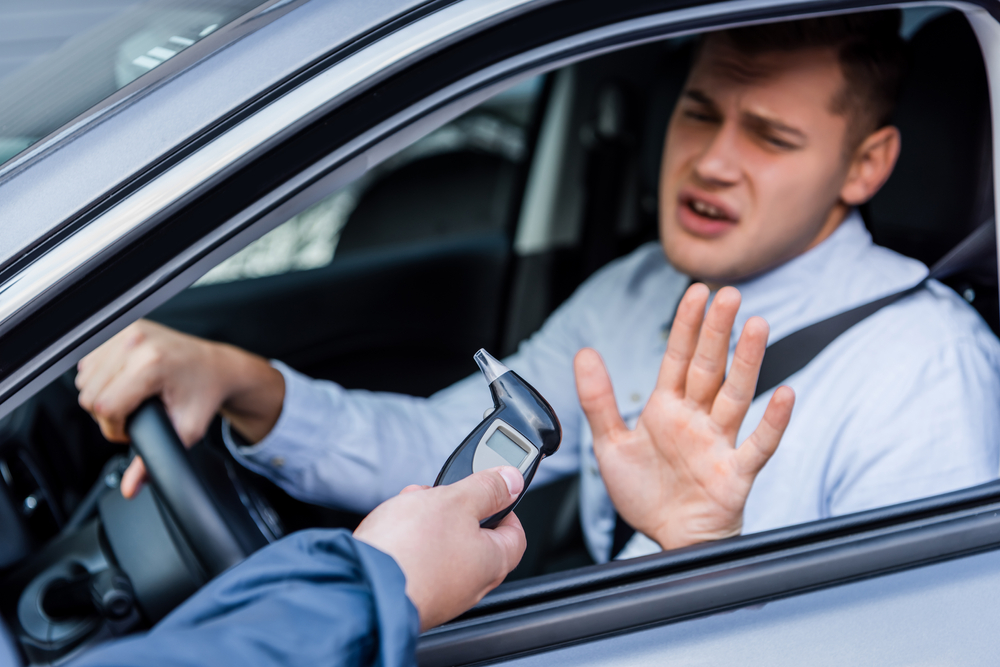Can I Refuse A Breathalyzer Test In Texas, And What Are The Consequences?
If you’ve been pulled over in Texas under suspicion of driving under the influence (DUI), you may be wondering what your rights are when it comes to taking a breathalyzer test. While you technically have the right to refuse this test, doing so has severe consequences that could seriously impact your life. As an Abilene DUI attorney, I understand the complexities of Texas’ implied consent laws and the importance of making informed decisions in these high-stakes situations.
This comprehensive guide will explore the legal implications of refusing a breathalyzer test, the potential defenses available, and the crucial steps you should take to protect your rights and future. Whether you’ve already refused or are considering your options, this information is essential for anyone facing DUI charges in Texas.
Our team of attorneys is resourceful, experienced, and knowledgeable regarding your rights. To learn more about how we can help you, call Low Law Firm today at 325.455.1889.

Step 1: Understand Texas’ Implied Consent Law
When you operate a motor vehicle in Texas, you automatically give consent to submit to breath or blood testing if suspected of driving under the influence (DUI). This is known as the Texas “implied consent” law. By driving on Texas roads, you agree to comply with a lawful request for a breath or blood test if an officer reasonably suspects you are impaired.
Texas’ implied consent law is outlined in the Transportation Code, Section 724.011. It states that if you are arrested for DUI, you are deemed to have consented to provide a breath or blood sample for testing. Refusing to comply with this request can lead to harsher penalties, including an automatic license suspension and potential criminal charges for the refusal itself.
Step 2: Evaluate the Consequences of Refusing a Breathalyzer Test
While you technically have the right to refuse a breathalyzer test in Texas, doing so has severe consequences. Suppose you refuse to provide a breath or blood sample after being arrested for DUI. In that case, your driver’s license will be automatically suspended for 180 days (first offense) or two years (subsequent offenses). This is known as the Administrative License Revocation (ALR) process.
Additionally, prosecutors can use your refusal as evidence of consciousness of guilt in court, making it more challenging to defend against the DUI charges. A refusal can sometimes lead to additional criminal charges, such as obstructing a government operation.
Step 3: Understand the Potential Defenses for Refusing a Breathalyzer
While the consequences for refusing a breathalyzer test in Texas are severe, there may be valid defenses that an experienced Texas DUI defense lawyer can assert on your behalf. For example, suppose the officer did not have reasonable suspicion to initiate the traffic stop or failed to properly advise you of the consequences of refusal. In that case, your refusal may be deemed justifiable.
Additionally, if you have a medical condition that prevents you from providing an adequate breath sample or if the testing equipment is faulty or improperly maintained, these factors could invalidate the refusal and subsequent license suspension.
Step 4: Seek Legal Representation from an Experienced Texas DUI defense lawyer
Given the complexities of Texas’ implied consent laws and the severe penalties for refusing a breathalyzer test, seeking legal representation from an experienced Texas DUI defense lawyer is crucial. A skilled attorney can thoroughly evaluate your case’s circumstances, identify potential defenses, and advocate for the best possible outcome on your behalf.
Step 5: Act Quickly to Protect Your Rights
If you have been arrested for DUI and refused a breathalyzer test, time is of the essence. You have a limited window (typically 15 days) to request an administrative hearing to contest the automatic license suspension. Please act promptly to avoid the suspension going into effect without the opportunity for a hearing.
An experienced Texas DUI defense attorney can guide you through this process, ensuring that your rights are protected and you have the best chance of avoiding or mitigating the consequences of a refusal.
Frequently Asked Questions (FAQs)
-
What happens if I refuse a breathalyzer test in Texas for a DUI?
If you refuse a breathalyzer test in Texas after being arrested for DUI, your driver’s license will be automatically suspended for 180 days (first offense) or two years (subsequent offenses). This is known as the Administrative License Revocation (ALR) process. Additionally, prosecutors can use your refusal as evidence of consciousness of guilt in court.
-
Can an Abilene DUI attorney help if I refuse a breathalyzer test?
Yes, an experienced Abilene DUI attorney can help you if you refuse a breathalyzer test in Texas. They can evaluate your case’s circumstances, identify potential defenses, and advocate for the best possible outcome.
-
What are the potential defenses for refusing a breathalyzer test in Texas?
Potential defenses for refusing a breathalyzer test in Texas include lack of reasonable suspicion for the traffic stop, improper advisement of the consequences of refusal, medical conditions preventing an adequate breath sample, or faulty testing equipment.
-
How long must I request an administrative hearing after refusing a breathalyzer test in Texas?
In Texas, you typically have 15 days to request an administrative hearing to contest the automatic license suspension resulting from refusing a breathalyzer test.
-
Can I be charged with refusing a breathalyzer test in Texas?
While refusing a breathalyzer test in Texas is not a criminal offense itself, prosecutors can use your refusal as evidence of consciousness of guilt in court. A refusal can sometimes lead to additional criminal charges, such as obstructing a government operation.
An Abilene DUI Attorney Can Defend Your Rights
Your dedicated DUI defense attorney will thoroughly review the evidence, identify potential weaknesses in the prosecution’s case, and develop an effective defense strategy tailored to your unique circumstances.
Call Low Law Firm at 325.455.1889 or complete our online form to schedule your free consultation.

